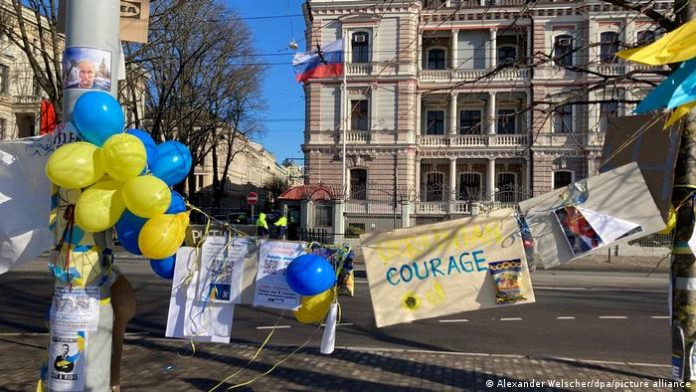After counting more than 90 percent of the votes, the party New Unity (Jauna Vienotiba) has almost 19 percent of the votes, according to data from the electoral commission in Riga. The second strongest force will be the opposition alliance of farmers and Greens (almost 13 percent) – which the Greens have since left. This is followed by the newly formed electoral alliance United List (about eleven percent) – with the participation of the Greens.
Coalition partners punished
According to the information, only one of Karins’ previous three coalition partners made it safely into parliament: the national-conservative National Alliance (around nine percent). While the conservative pro-Western party Konservativie, which has co-governed to date, clearly failed to reach the five percent hurdle, the liberal party For Development/For! just above it.
With the counting of the remaining votes in the Baltic state, the balance of power could still shift. The social-democratic opposition party Harmonie in particular relies on this. The strongest political force in Latvia to date is currently only 4.8 percent, just under the five percent hurdle for entering parliament. The party, whose core voters come mainly from the strong minority of Russian origin and won the most votes in the last elections, is the big loser of the vote. In 2018 she had received almost 20 percent of the votes.
According to the current state of counting, a total of eight parties made it into the Saeima parliament. In addition to the new electoral alliance United List, there are three other new groups.
Forming a government will be difficult
After the vote, Prime Minister Karins was ready to lead the coming government. In view of the emerging majorities, however, difficult coalition negotiations are expected. The current coalition’s allies are no longer able to secure a majority in Riga’s 100-seat parliament, leaving Karin with additional allies to remain prime minister.
“I am convinced that we will be able to find such a solution,” said Karims early on Sunday morning. “First and foremost it is about how we all get through the winter, not only in Latvia but in the whole EU, and that we all stand united behind Ukraine and do not waver in the face of difficulties,” said Karins.
Fear of Russia was a central campaign issue
The election campaign was dominated by the Russian war of aggression against Ukraine. Similar to Lithuania, Estonia and Poland, many people in Latvia fear that their country could also be attacked despite being a member of the EU and NATO. The Baltic states and Poland consequently sided with Ukraine.

Pro-Ukrainian protest with balloons in the colors of the national flag of Ukraine in front of the Russian embassy in Riga
The war also raised other sensitive issues for Latvians in dealing with everything Russian. These include the use of the Russian language, the loyalty of ethnic Russians in Latvia and a debate on the national culture of remembrance. Many citizens in the state with 1.9 million inhabitants are also worried about the sharp rise in energy prices and high inflation.
Like the German Christian Democrats, Karim’s Jauna Vienotiba party belongs to the EPP group in the European Parliament. He is the first Latvian prime minister to serve a full four-year term. Politically, the 57-year-old has benefited from his consistent policy towards Moscow, which includes restricting the entry of Russian citizens from Russia and Belarus. In addition, the defense budget was significantly increased.
qu/fab (dpa, afp)











